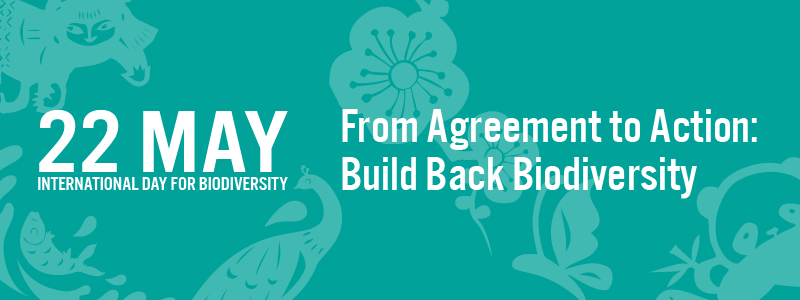From agreement to action: Contributing to biodiversity conservation through sustainable practices
- From
-
Published on
25.05.23
- Impact Area


Biological diversity is undoubtedly a global asset of tremendous value to future generations. Yet, certain human activities are leading to the deterioration and significant reduction in the number of many species.
To increase understanding and awareness of biodiversity issues, International Biodiversity Day is celebrated annually on 22 May. This year’s theme, From agreement to action: Build back biodiversity, focuses on finding tangible solutions to the challenges related to the restoration and protection of biodiversity.
Commemorating the day, the International Rice Research Institute (IRRI) is committed to practices offering sustainable and resilient approaches to agriculture such as organic farming practices. Organic farming practices address a number of challenges related to biodiversity conservation including:
Organic farming practices and biodiversity conservation
Organic farming distinguishes itself by prohibiting synthetic pesticides, herbicides, and fertilizers to reduce the risk of environmental contamination and fosters biodiversity. By relying on natural and organic inputs, organic farmers prioritize the preservation of ecosystems. This approach promotes healthier soils, water sources, and habitats, allowing diverse flora and fauna to thrive.
Promoting ecological balance
Organic farming practices prioritize preserving ecological balance by embracing natural cycles and minimizing ecosystem disruptions. By avoiding synthetic chemicals, organic farmers protect beneficial organisms such as pollinators, birds, and soil organisms that play vital roles in agricultural productivity. For instance, pollinators are crucial for the reproduction of many crop species, contributing to their genetic diversity and enhancing food security.
Protection of wildlife habitats
Organic farming recognizes the significance of wildlife habitats and strives to preserve and create suitable environments for various species. IRRI South Asia Research Centre (ISARC) and other organizations have been at the forefront of ecological engineering, creating habitats that attract beneficial insects, birds, and other wildlife.
The bird perches strategically placed in organic fields provide perching and hunting spots for birds, reducing pest populations naturally without chemical interventions.
Related news
-

ICRISAT to Deliver World-Class Services as CGIAR’s Breeding Resources South Asia Hub
International Crops Research Institute for the Semi-Arid Tropics (ICRISAT)07.07.25-
Biodiversity
-
Food security
Strategic collaboration to scale innovation and deliver harmonized, high-quality support across CGIA…
Read more -
-

Multifunctional Landscapes that reconcile food production, with ecosystem restoration and biodiversity conservation
Multifunctional Landscapes Science Program06.07.25-
Biodiversity
-
Environmental health & biodiversity
The CGIAR Multifunctional Landscapes Science Program (MFL SP) is driven by a bold vision of…
Read more -
-

Mapping for Resilience: How Spatial Data is Transforming Karamoja Cluster
Ibukun Taiwo02.07.25-
Climate adaptation & mitigation
Pastoral communities in the Karamoja Cluster (a region spanning Kenya, Uganda, South Sudan, and Ethi…
Read more -
